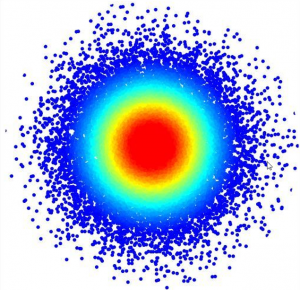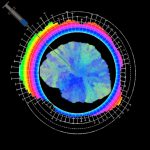Tumor evolution and microbial forensics: the PLOS Comp Biol March Issue
Here are some highlights from March’s PLOS Computational Biology
Spatial Heterogeneity in Drug Concentrations

Acquired resistance is one of the major barriers to successful cancer therapy. There is increasing evidence that the tumor microenvironment influences cell sensitivity to drugs and thus mediates the evolution of resistance during treatment. Feng Fu and colleagues use mathematical models to investigate the effect of drug heterogeneity on the probability of escape from treatment and the time to resistance, and the results provide new insights into understanding why cancers tend to quickly become resistant.
Evolution and Phenotypic Selection of Cancer Stem Cells
Cells of different organs at different ages have an intrinsic set of kinetics that dictates their behaviour. After transformation into cancer cells, these kinetics – that determine initial cell and tumour population progression dynamics – will be inherited. However, due to subsequent genetic mutation, cancer cell kinetics can change, and favourable alterations that increase cellular fitness will manifest themselves and accelerate tumor progression. Heiko Enderling and colleagues present a computational model of cancer stem cell evolution during tumor growth.
Microbial Forensics
Can the cellular state and environmental conditions of an organism be inferred from its gene expression signature? To investigate this question, Ilias Tagkopoulos and colleagues create an extensive normalized gene expression compendium for the bacterium Escherichia coli, and then construct an ensemble method to predict environmental and cellular state. Functional analysis of the most informative genes provides mechanistic insights and palpable hypotheses regarding their role in each environmental or genetic context.


[…] Tumor evolution and microbial forensics: the PLOS Comp Biol March Issue – Cells of different organs at different ages have an intrinsic set of kinetics that dictates their behaviour. After transformation into cancer cells, these kinetics – that determine initial cell and tumour population … stem cell evolution during tumor … […]